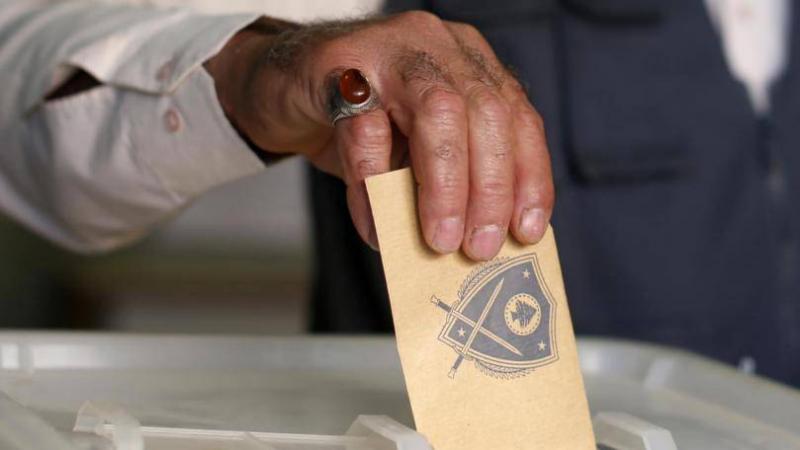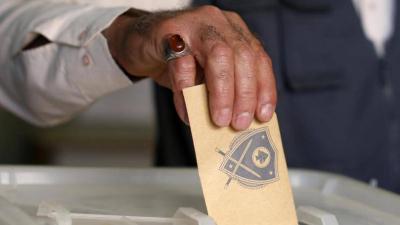The competition among the lists of the civil movement weakens their chances in more than one electoral district, most notably in the "Beirut II" district, where six lists from this movement are competing, prior to the withdrawal of the "Beirut Madinati" list in favor of other civil society lists, also known as "revolution lists". However, the chances of breaking through the power of change remain slim due to the multitude of lists and the fragmentation of their votes, contrasting with the cohesion of the authority's lists and parties.
The difficulties faced by the “revolution” lists are not only due to the power's ability to encircle and besiege them, but also stem from their internal division and the increased number of their candidates, which has diluted the real influence on voters who had bet on the October 17, 2019, uprising. This has diminished the chances of penetrating the authority's lists. Nevertheless, the withdrawal of "Beirut Madinati" has provided a breathing space for other lists that may mitigate the difficulty of their contest. Therefore, electoral expert Kamal Fghali noted that this withdrawal "might benefit other lists". He stated to "Asharq Al-Awsat" that "surveys indicate that a prominent list of the movement lacks some votes to win a seat or two, especially since the number of expatriates registered in Beirut II ranges between 26,000 and 27,000 votes, and these were registered on their own initiative, most of whom are likely to vote for the revolution lists." Fghali emphasized that "if 70% of these expatriates vote, they can elect two deputies," considering that "the significant impact of expatriate votes will also play a role in major districts, such as the North III district (which includes Batroun, Zgharta, Koura, and Bsharri) and Mount Lebanon II (Shouf - Aley)."
While those concerned with electoral affairs attributed this withdrawal to the inability of some lists to make a breakthrough and preemptively justifying their loss, candidate on the “Beirut Madinati” list, Nahida Khalil, clarified that they did not withdraw, as the list is legally registered at the Ministry of Interior. She confirmed to "Asharq Al-Awsat" that "what happened is the freezing of the election campaign for the (Beirut Madinati) list in the Beirut II district, but its lists continue to battle in Beirut I and other areas."
In the Beirut II district, six lists categorized under the forces of change are competing, following the failure of their candidates to unify themselves under a single list. These lists are ("Let Beirut Remain", "Capable", "Beirut Madinati", "Independents", "Beirut Change", and "This is Beirut"). In contrast, four other lists formed by parties and figures that have engaged in political work in recent years comprise "Beirut Faces," which is supported by former Prime Minister Fouad Siniora, and "Unity of Beirut" formed by the duo of "Hezbollah" and "Amal" along with the "Free Patriotic Movement," "Beirut Needs a Heart," formed by MP Fouad Makhzoumi, and "For Beirut" list belonging to the "Ahbash" group allied with "Hezbollah" and the Syrian regime.
Nahida Khalil justified the reasons for freezing her campaign in "Beirut II" due to "the immense pressures exerted on the list members, holding them responsible for the division occurring among the revolution lists and the fragmentation of votes among them, ultimately reducing their chances of winning." She stated that "everything said about granting votes from our list to any other list is unfounded; the people's votes belong to them, and it is up to voters to decide their options by voting for those who represent them." She urged people to "participate widely and vote against corrupt authority candidates, encouraging citizens to elect someone with a reform program and to give a chance to candidates who have never been part of the authority or benefited from its projects and deals."
In light of the ongoing collapse and the loss of hope for any change from those who have led the Lebanese to despair, Khalil called for "the departure of the system that usurps power and the parliamentary council." She pointed out that "the lists of (Beirut Madinati) will remain in the heart of the battle and confrontation in all districts, engaging under the banners of rebuilding the state and its institutions, and holding accountable all those involved in corruption and against abolishing political sectarianism and building a civil state."




